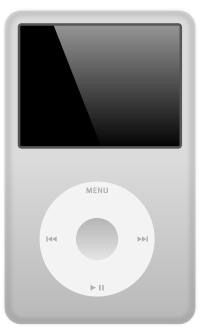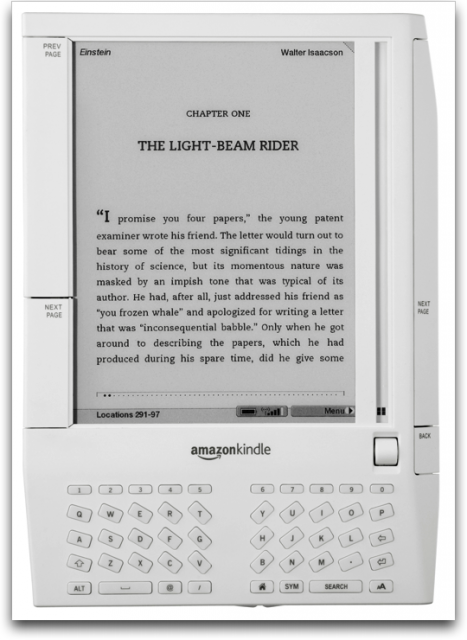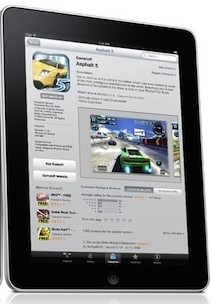The world network, quite deservedly, won the fame of the information environment, which enables the free exchange of ideas. Starting with the opening of the media and providing free content, go to interactivity between the site and the users and ending with the transforming of each user into a source of information.
Ways in which one can communicate and connect with other users are so many and so diverse, including text, sound and image. Traditional e-mail (even it is no longer traditional after the launch of the chat, and now Buzz social network by Google), the various IM clients, social networks, blogs, forums ... A constant flow of information. And all were set to the idea of opening the standards, for the so-called "free lunch". The user takes advantage of it for free, while advertising provides the means by which sites are supported. We could almost swear that the commercial model is dead. Almost ...
 What turned things. Believe it or not, but I think the reason is something that is a bit distant from the internet. At least at first glance. Everything starts from a small and very successful product: iPod. Exactly, a small player that, contrary to all expectations for record companies refusing to enter the Internet, created a successful business model. It was followed by iPhone, which with the Аpp Store turned the business of selling mobile phones and minutes of talk in integrated service oriented towards entertainment and multimedia, with many applications.
What turned things. Believe it or not, but I think the reason is something that is a bit distant from the internet. At least at first glance. Everything starts from a small and very successful product: iPod. Exactly, a small player that, contrary to all expectations for record companies refusing to enter the Internet, created a successful business model. It was followed by iPhone, which with the Аpp Store turned the business of selling mobile phones and minutes of talk in integrated service oriented towards entertainment and multimedia, with many applications.
This broke the pattern and turned the wind. Now everyone wants to have its own platform, to link users with their own service, to sell through their own Internet store. And this does not only apply to mobile phones and services! Ubiquitous Google, which started so many open source projects and earn the lion's share of Internet advertising, even they gave indications that they are considering the idea of opening their own applications store.
 Kindle by Amazon and the Apple iPad give serious application for transfering of books in an e-version. But this is just the beginning. Soon, one of the giants in the newspaper
Kindle by Amazon and the Apple iPad give serious application for transfering of books in an e-version. But this is just the beginning. Soon, one of the giants in the newspaper  and media business NY Times, announced it plans to re-launch paid content. Would we be witnessing the return of paid services offered to advanced and expensive equipment. A revival of the newspapers in the e-version, e-journals and e-books to which we only have access after subscription. So everything that came under "free lunch" will now restore all its distinctive character, but a new form. Adding to that music and movies (the last for now remain the most conservative to the idea of representation in the world wide web), then I think the circle is closed. The model for which all have headed can also expand to the traditionally free services such as email and IM communication. Social networks are constantly trying various commercial models so as to derive maximum benefit from the presence of millions of users who visit them every day - games, virtual money, virtual gifts, etc. etc.
and media business NY Times, announced it plans to re-launch paid content. Would we be witnessing the return of paid services offered to advanced and expensive equipment. A revival of the newspapers in the e-version, e-journals and e-books to which we only have access after subscription. So everything that came under "free lunch" will now restore all its distinctive character, but a new form. Adding to that music and movies (the last for now remain the most conservative to the idea of representation in the world wide web), then I think the circle is closed. The model for which all have headed can also expand to the traditionally free services such as email and IM communication. Social networks are constantly trying various commercial models so as to derive maximum benefit from the presence of millions of users who visit them every day - games, virtual money, virtual gifts, etc. etc.
If you are left with the impression that somewhere around here should appear criticism, then here it comes. The problem is not in the commercialization but in the segmentation;
1. Firstly, the standards are closing to link the devices, protocols and developers to a specific service.
2. Secondly, groups of people are excluded who are not wealthy and can not lay down a credit card to fully participate in such a commercial model. However, the advantage of the Internet and projects like OLPC (marginal as it is) is the free access and exchange information and ideas.
3. Thirdly, the universality of the Internet itself as an environment is limited to a simple mediator of cash transactions.
Isn’t it in colors too dark? Maybe so, however it is possible. Imagine that you can not purchase an e-book, because the publishing house behind it, has not signed a contract with the manufacturer of your device. Or you cannot take advantage of an IM service, because it belongs to a rival company, to the one which has produced device.
Of course, any negative thing has its good sides. We might start to communicate more effectively in living life with all of our restrictions and our strengths, and not just virtually, by means of our beautiful avatars. 
I believe the market and consumers themselves can direct the processes and balance things. Moreover, although convineint, each restriction marked by a status of 'golden cage' sooner or later must become conscious and a strive is created to be overcome. It would be nice to get my favorite newspaper in the  e-version and to “unfold” it on my tablet. I am just wondering, how will I quote and use information that has been paid? What the heck, most of the Bulgarian media have not yet begun to open, so ironically, they might turn out to be up to date with innovations.
e-version and to “unfold” it on my tablet. I am just wondering, how will I quote and use information that has been paid? What the heck, most of the Bulgarian media have not yet begun to open, so ironically, they might turn out to be up to date with innovations.
PS Dear colleagues from the media, please put a link to that material quoted, when you use the provided information free of charge. While you can still do that. This is a small 'price' and is to your advantage: search engines evaluate also the outgoing links that you place. Furthermore, it is ethical. I stop here and I will not mention the law, and besides the topic concerns something else.